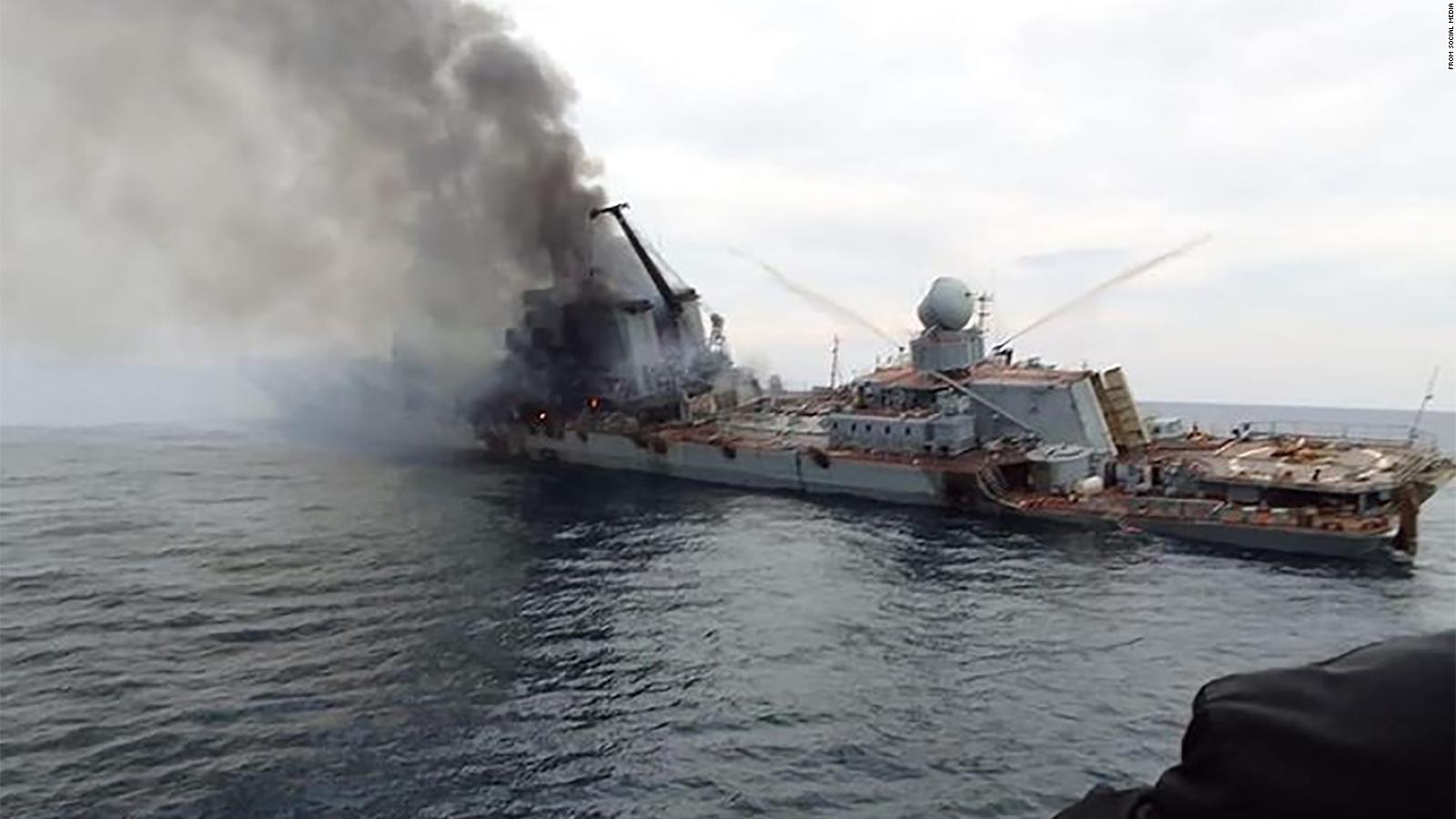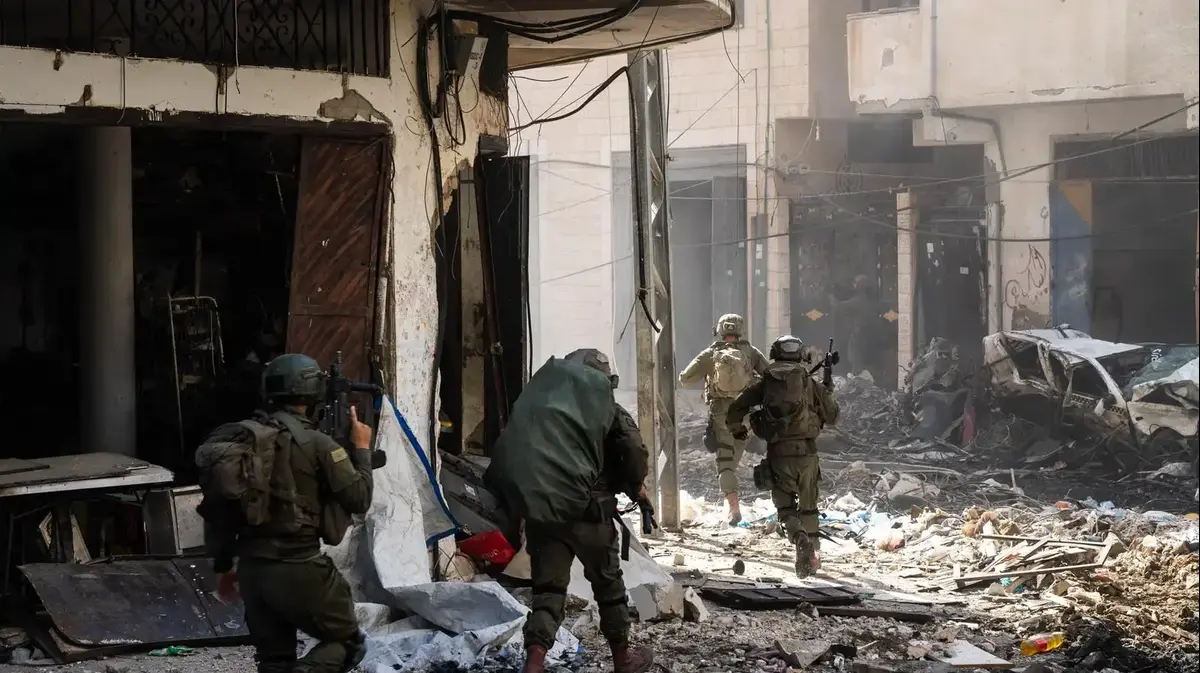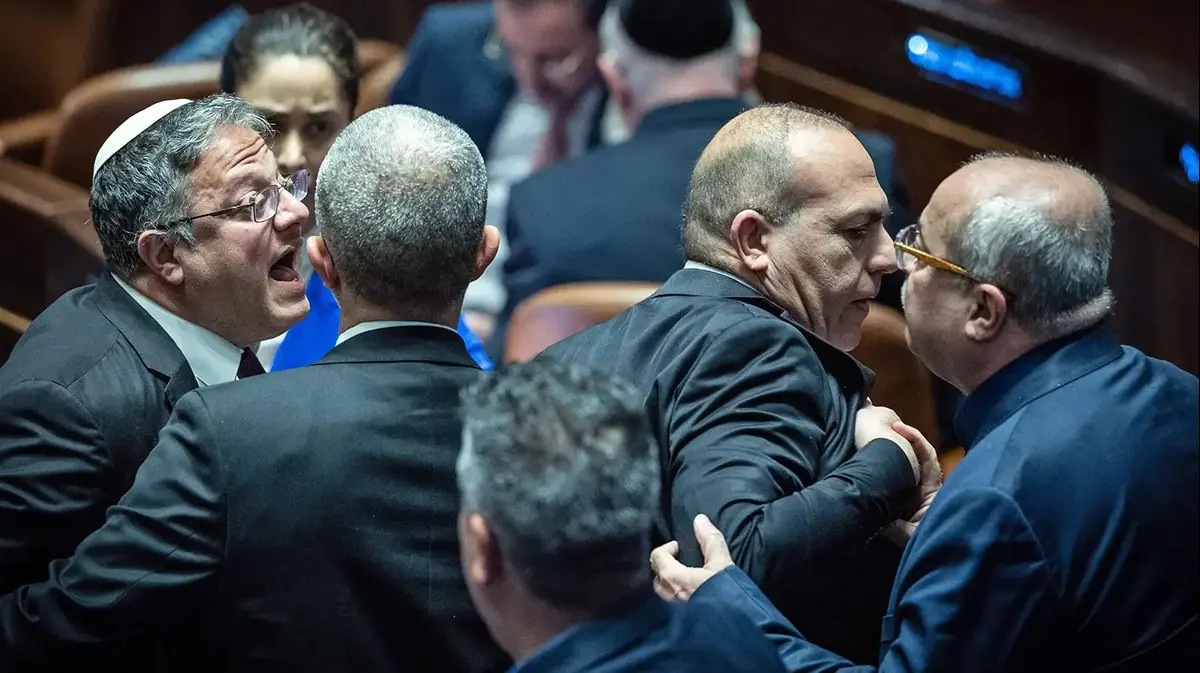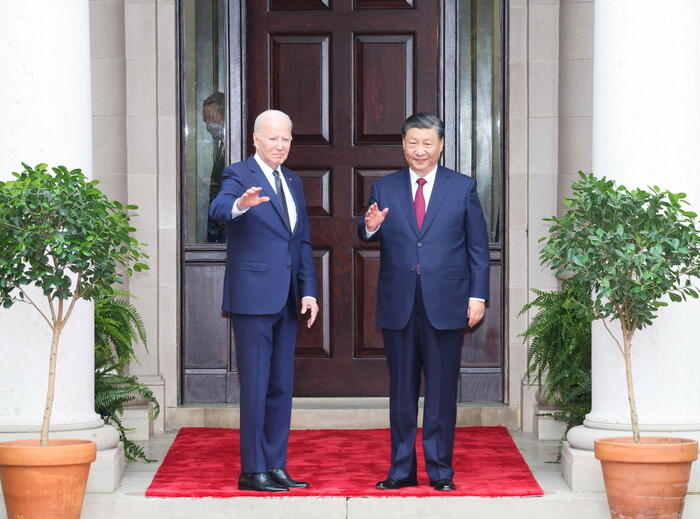Rare footage of Russian purge camp for Ukrainians 0:55
(CNN) --
Two months into Russia's war in Ukraine, the Joe Biden administration has stepped up intelligence sharing with Kyiv, contributing to successful strikes against senior Russian leaders and the flagship of the Russian Navy, the Moskva, sources familiar with the intelligence exchange told CNN.
But the work raises questions about how far the White House is willing to go to help Ukraine fight the Russians while trying to avoid provoking Moscow and becoming drawn into the conflict.
Administration officials insist there are clear limits on the intelligence it shares with Ukraine, including a ban on providing intelligence on top Russian leaders by name, part of a White House effort to avoid crossing a line that Moscow may see it as too escalating.
The United States provided intelligence that helped Ukraine attack the Russian warship Moskva
However, some current and former officials have suggested that the limits the Biden administration has set are arbitrary, in part because the end result is the same: Ukrainian attacks killing senior Russian leaders.
On top of that, any US assessment of what actions might provoke Moscow depends on the thinking of one man, Russian President Vladimir Putin.
"You try to put yourself in Vladimir Putin's shoes and try to see, what does he see as crossing a red line?" said retired Lt. Gen. Robert Ashley, a former head of the Defense Intelligence Agency.
"That red line is one that probably only exists in Putin's head, and may not be something he thought of or conveyed."
advertising
Sources familiar with the administration's approach say decisions to gradually expand the intelligence it is willing to share with Ukraine have been based primarily on the judgments of Biden administration officials rather than any shifting assessment of how escalated Russia might see it. a certain action.
Ukrainians search for family members missing due to war 3:35
They also reflect the evolving reality on the ground in Ukraine.
US intelligence-sharing guidelines have been updated in recent weeks, for example to help Ukraine conduct offensive operations inside the Donbas region, where Russia has refocused its military efforts after failing to take Kyiv. .
"I wouldn't describe any lines as thin or imaginary," Pentagon press secretary John Kirby told CNN's Briana Keilar on "New Day" on Friday.
"The intelligence we provide to Ukraine is legal. It is legitimate and limited. And we are very careful about what we share and when we share it."
The Joe Biden administration has also provided billions of dollars worth of weapons and has publicly acknowledged providing tactical intelligence to the Ukrainians.
But as the war continues and Ukraine takes out numerous high-profile targets, the White House has tried to carefully calibrate how it describes the impacts intelligence has on the battlefield.
For some former officials, it is a distinction without a difference.
“Everyone knows that we are providing shared intelligence.
We are providing intelligence on targets for the artillery, for other systems that the Ukrainians are using, so I don't see this in any way as some kind of escalation in the relationship," the former Defense Secretary and former CIA director told him on Friday. , Leon Panetta, to CNN's Victor Blackwell.
"I see it basically as maintaining the relationship that we established at the beginning of this war."
Panetta added: “Obviously we are providing the missile systems, we are providing the artillery, we are providing the Stingers and the other weapons that are being provided, but it is the Ukrainians who decide how to use it and what targets to shoot. what war is about."
Images emerged early Monday, April 18, on social media showing Russia's guided missile vessel, the Moskva, badly damaged and ablaze hours before the ship sank in the Black Sea.
So far, Russia has not taken any known direct action against the United States or NATO in response to ongoing military and intelligence support.
US officials have been left with speculation as to why Moscow has held back, particularly when it comes to cyberattacks, which the US has warned Russia could use as retribution for its pre-war aid.
Russia has also made no move to attack Kyiv during visits by a string of top US leaders, from House Speaker Nancy Pelosi to Secretary of State Antony Blinken.
And it certainly hasn't tried to attack arms shipments flowing through Poland, a NATO nation.
Only recently has Russia started attacking railways inside Ukraine that are believed to be bringing Western weapons to the fight.
Some current and former Western officials suggest that the Kremlin might be as wary of escalation as the White House, and keenly aware that, at least when it comes to conventional military power, the United States has Moscow at a clear disadvantage.
Why May 9 is a big day for Russia and what a declaration of war would mean
Russia could be holding back cyberattacks for a number of reasons, the sources say.
You may be worried that the US will retaliate with a cyber attack of its own, introducing another element of chaos into an already disorganized and disorderly military operation.
Russia may also be keeping its powder dry in case it comes into direct conflict with the US or NATO.
Some officials believe that sheer incompetence on Russia's part may also be to blame.
"Whether it's Russian inefficiency or Russian indecisiveness on NATO is not known," said retired Gen. Wesley Clark, a CNN military analyst and former NATO Supreme Allied Commander.
"They know that if NATO really got involved, this would be over in no time, except for the recourse to nuclear weapons."
Russian government cyber teams received no advance notice of the war, according to a source familiar with Western intelligence.
And with Western cybersecurity defenses up in anticipation of a possible attack, it's also possible that Russian cyberattacks are failing.
Despite the extensive intelligence that the Joe Biden administration has shared with Ukraine, including intercepted communications and information about Russian troop movements, some Republican lawmakers have accused the White House of not doing enough.
"A few weeks ago, the criticism we were getting was, 'Well, you're not giving them enough intelligence, it's too slow, it's not relevant enough,'" Kirby said Friday on CNN.
"So we continue to provide them with intelligence and information and will continue to do so in the future."
CNN's Natasha Bertrand contributed to this report.
war in ukraine











/cloudfront-eu-central-1.images.arcpublishing.com/prisa/KMEYMJKESBAZBE4MRBAM4TGHIQ.jpg)



